When Robert Mueller was appointed special counsel in 2017, he was given several subjects to investigate: Russian meddling in the election, any coordination between Russia and the Trump campaign and any other crimes arising from the investigation.
So far, he has delivered a lot of detail about the first and the last, but has not said much about any Trump coordination.
To Trump and his supporters, that has provided a vindication of sorts. Trump has repeatedly argued that guilty pleas and successful prosecutions from Mueller’s team actually show that there was “no collusion.” The special counsel’s office has regularly declined to comment on its findings, but some of the details provided so far provide hints that there may be more to the story.
Still, understanding all of the findings in light of the dizzying array of charges and countercharges can be difficult. So we’ve pulled all of the most relevant legal findings together in one place.
Overall, they sketch a suggestive picture. According to the legal documents, Russia began a massive project to sow political discord in the United States, eventually deciding to support Trump and disparage Clinton in the 2016 election. As part of that project, the documents show, Russian nationals made repeated efforts to reach out to members of the Trump campaign which were met with interest, in part because Trump was pursuing a real estate deal in Moscow until the eve of the Republican convention.
On more minor notes, the court filings also show that Trump’s longtime attorney, Michael Cohen, worked with the National Enquirer to keep two sex scandals out of the news; National Security Advisor Michael Flynn had an interesting discussion with the then-Russian ambassador about sanctions related to election meddling; and former campaign chairman Paul Manafort kept in touch with the Trump Administration even as he was being investigated.
The legal filings have also revealed a lot of other damning information, including unlawful personal dealings by Cohen, Flynn and Manafort and times in which various individuals under investigation lied to FBI agents or Congress. We have left these out of the story in order to make it easier to follow and focus on what appear to be the more central questions. At this point, who knows where Mueller is ultimately headed.
We have replaced some legal terms from the filings, such as “defendants,” by people’s actual names in brackets for clarity’s sake. Several of the filings refer to “Individual-1,” who is widely understood to be Trump, so we have replaced it with his name there too.
Russia’s project to sow discord
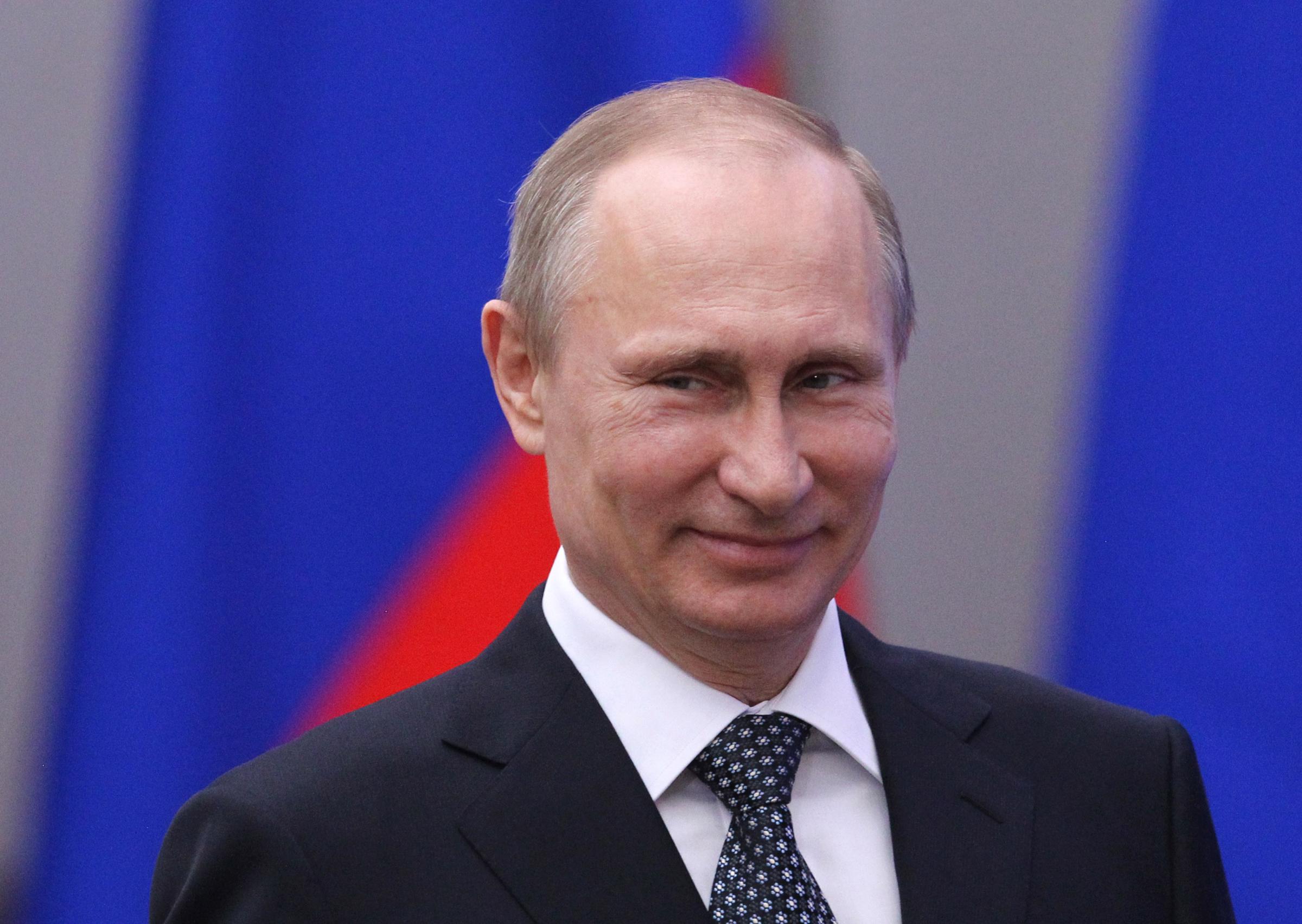
The Internet Research Agency started in Russia in 2013
[The Internet Research Agency LLC] (Агентство Интернет Исследований) is a Russian organization engaged in political and electoral interference operations. In or around July 2013, the [the Internet Research Agency] registered with the Russian government as a Russian corporate entity. … The [Internet Research Agency] employed hundreds of individuals for its online operations, ranging from creators of fictitious personas to technical and administrative support. The [Internet Research Agency’s] annual budget totaled the equivalent of millions of U.S. dollars.
Source: Charging documents against Internet Research Agency et al, Feb. 16, 2018
The agency used social media to influence U.S. politics
[Employees of the Internet Research Agency] posing as U.S. persons and creating false U.S. personas, operated social media pages and groups designed to attract U.S. audiences. These groups and pages, which addressed divisive U.S. political and social issues, falsely claimed to be controlled by U.S. activists when, in fact, they were controlled by [the Internet Research Agency]. [Employees] also used the stolen identities of real U.S. persons to post on [Internet Research Agency]-controlled social media accounts. … The [Internet Research Agency] sought, in part, to conduct what it called “information warfare against the United States of America” through fictitious U.S. personas on social media platforms and other Internet-based media.
Source: Charging documents against Internet Research Agency et al, Feb. 16, 2018
The goal was to make U.S. politics more divisive
[The Internet Research Agency] had a strategic goal to sow discord in the U.S. political system, including the 2016 U.S. presidential election. [Employees] posted derogatory information about a number of candidates, and by early to mid-2016, [employees’] operations included supporting the presidential campaign of then-candidate Donald J. Trump (“Trump Campaign”) and disparaging Hillary Clinton. [Employees] made various expenditures to carry out those activities, including buying political advertisements on social media in the names of U.S. persons and entities. [Employees] also staged political rallies inside the United States, and while posing as U.S. grassroots entities and U.S. persons, and without revealing their Russian identities and [Internet Research Agency] affiliation, solicited and compensated real U.S. persons to promote or disparage candidates.
Source: Charging documents against Internet Research Agency et al, Feb. 16, 2018
Staffers attacked Rubio, Cruz and Clinton, but supported Sanders and Trump
By 2016, [employees of the Internet Research Agency] and their co-conspirators used their fictitious online personas to interfere with the 2016 U.S. presidential election. They engaged in operations primarily intended to communicate derogatory information about Hillary Clinton, to denigrate other candidates such as Ted Cruz and Marco Rubio, and to support Bernie Sanders and then-candidate Donald Trump.
Source: Charging documents against Internet Research Agency et al, Feb. 16, 2018
They reached out to Trump campaign officials as ‘Matt Skiber’ and ‘Josh Milton’
On or about August 18, 2016, the real “Florida for Trump” Facebook account responded to the false U.S. persona “Matt Skiber” account with instructions to contact a member of the Trump Campaign (“Campaign Official 1”) involved in the campaign’s Florida operations and provided Campaign Official 1’s email address at the campaign domain donaldtrump.com. On approximately the same day, Defendants and their co-conspirators used the email address of a false U.S. persona, joshmilton024@gmail.com, to send an email to Campaign Official 1 at that donaldtrump.com email account. …
On or about August 19, 2016, a supporter of the Trump Campaign sent a message to the [Internet Research Agency]-controlled “March for Trump” Twitter account about a member of the Trump Campaign (“Campaign Official 2”) who was involved in the campaign’s Florida operations and provided Campaign Official 2’s email address at the domain donaldtrump.com. On or about the same day, Defendants and their co-conspirators used the false U.S. persona joshmilton024@gmail.com account to send an email to Campaign Official 2 at that donaldtrump.com email account. …
On or about August 19, 2016, the real “Florida for Trump” Facebook account sent another message to the false U.S. persona “Matt Skiber” account to contact a member of the Trump Campaign (“Campaign Official 3”) involved in the campaign’s Florida operations. On or about August 20, 2016, Defendants and their co-conspirators used the “Matt Skiber” Facebook account to contact Campaign Official 3.
Source: Charging documents against Internet Research Agency et al, Feb. 16, 2018
George Papadopoulos’ Russian connections
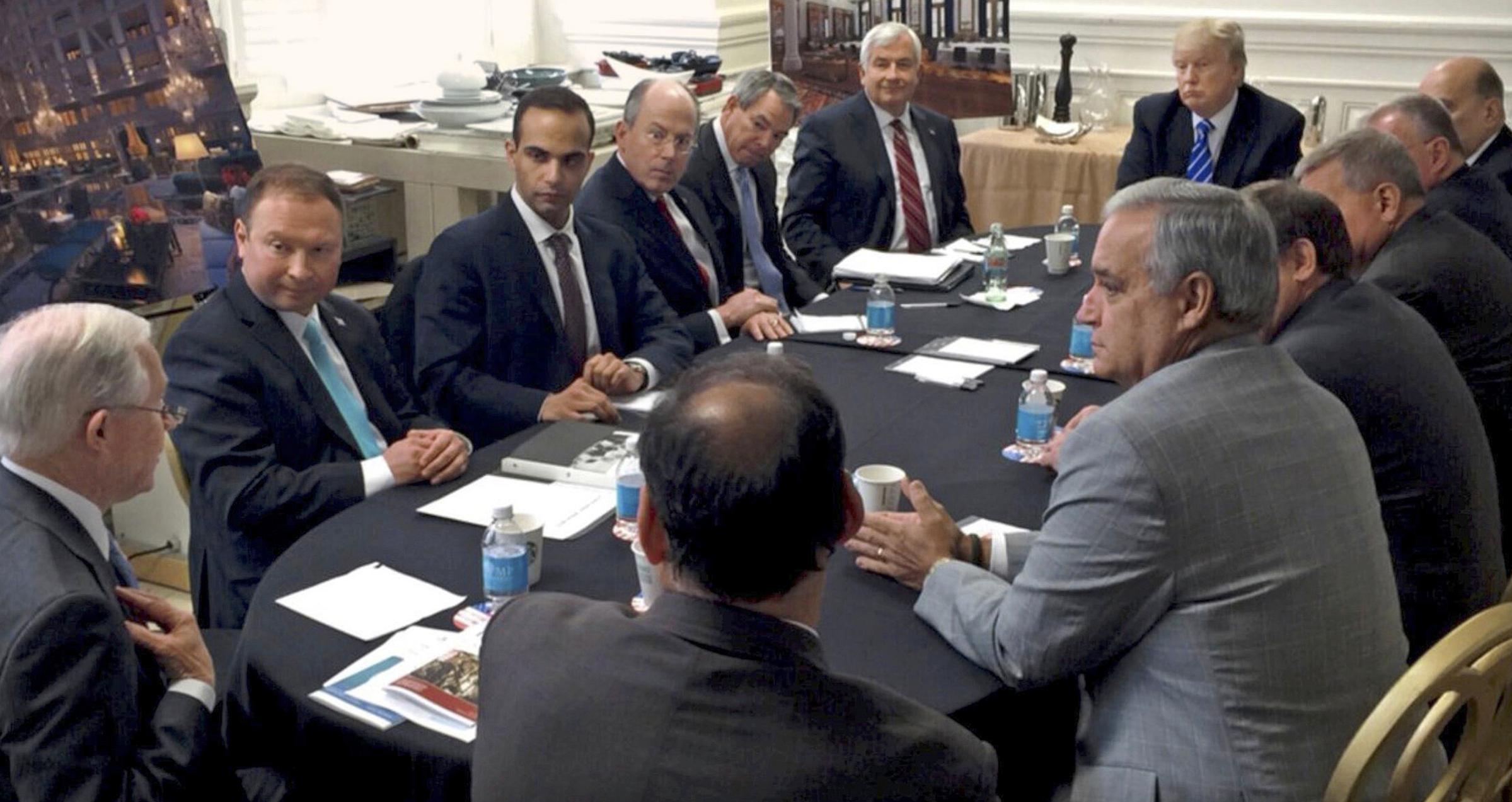
George Papadopoulos was a Trump foreign policy advisor
In early March 2016, [George Papadopoulos] learned he would be a foreign policy advisor for the Campaign. [Papadopoulos] was living in London, England, at the time. Based on a conversation that took place on or about March 6, 2016, with a supervisory campaign official (the “Campaign Supervisor”), [Papadopoulos] understood that a principal foreign policy focus of the Campaign was an improved U.S. relationship with Russia.
Charging documents against George Papadopoulos, Oct. 5, 2017
Papadopoulos met with a professor with Russian connections
On or about March 14, 2016, while traveling in Italy, [Papadopoulos] met an individual who was a professor based in London (the “Professor”). Initially, the Professor seemed uninterested in [Papadopoulos]. However, after [Papadopoulos] informed the Professor about his joining the Campaign, the Professor appeared to take great interest in [Papadopoulos]. [Papadopoulos] was interested in the Professor because, among other reasons, the Professor claimed to have substantial connections with Russian government officials, which [Papadopoulos] thought could increase his importance as a policy advisor to the Campaign.
Charging documents against George Papadopoulos, Oct. 5, 2017
The professor introduced Papadopoulos to a supposed Putin niece
On or about March 24, 2016, [Papadopoulos] met with the Professor in London. The Professor brought with him a female Russian national (the “Female Russian National”), introduced to [Papadopoulos] as a relative of Russian President Vladimir Putin with connections to senior Russian government officials. … Following his March 24, 2016 meeting with the Professor and the Female Russian National, [Papadopoulos] emailed the Campaign Supervisor and several members of the Campaign’s foreign policy team and stated that he had just met with his “good friend” the Professor, who had introduced him to the Female Russian National (described by [Papadopoulos] in the email as “Putin’s niece”) and the Russian Ambassador in London. [Papadopoulos] stated that the topic of their discussion was “to arrange a meeting between us and the Russian leadership to discuss U.S.-Russia ties under President Trump.” The Campaign Supervisor responded that he would “work it through the campaign,” but that no commitments should be made at that point. The Campaign Supervisor added: “Great work.” … [Papadopoulos] later learned that the Female Russian National was not in fact a relative of President Putin.
Charging documents against George Papadopoulos, Oct. 5, 2017
Papadopoulos tried to arrange a Trump-Putin meeting
On or about March 31, 2016, [Papadopoulos] attended a “national security meeting” in Washington, D.C., with then-candidate Trump and other foreign policy advisors for the Campaign. When [Papadopoulos] introduced himself to the group, he stated, in sum and substance, that he had connections that could help arrange a meeting between then-candidate Trump and President Putin. After his trip to Washington, D.C., [Papadopoulos] worked with the Professor and the Female Russian National to arrange a meeting between the Campaign and the Russian government, and took steps to advise the Campaign of his progress. In early April 2016, [Papadopoulos] sent multiple emails to other members of the Campaign’s foreign policy team regarding his contacts with “the Russians” and his “outreach to Russia.”
Charging documents against George Papadopoulos, Oct. 5, 2017
The professor told Papadopoulos the Russians had ‘dirt’ on Clinton
On or about April 26, 2016, [Papadopoulos] met the Professor for breakfast at a London hotel. During this meeting, the Professor told [Papadopoulos] that he had just returned from a trip to Moscow where he had met with high level Russian government officials. The Professor told [Papadopoulos] that on that trip he (the Professor) learned that the Russians had obtained “dirt” on then-candidate Clinton. The Professor told [Papadopoulos],as [Papadopoulos] later described to the FBI, that “They [the Russians] have dirt on her”; “the Russians had emails ofClinton”; “they have thousands of emails.”
Charging documents against George Papadopoulos, Oct. 5, 2017
Donald Trump’s Moscow tower development
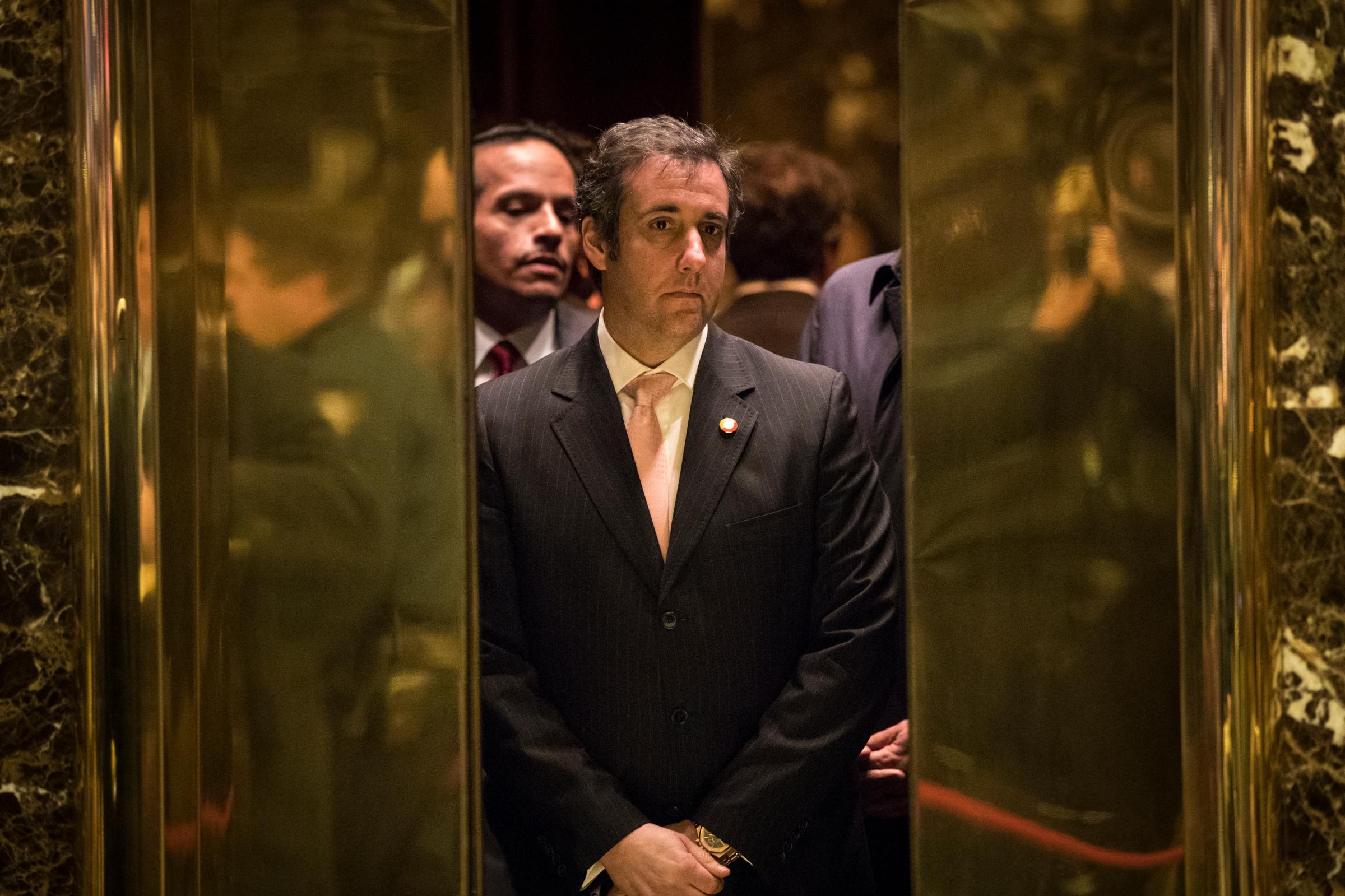
Michael Cohen became Trump’s lawyer in 2007
Cohen is a licensed attorney and has been since 1992. Until 2007, Cohen practiced as an attorney for multiple law firms, working on, among other things, negligence and malpractice cases. For that work, Cohen earned approximately $75,000 per year. In 2007, Cohen seized on an opportunity. The board of directors of a condominium building in which Cohen lived was attempting to remove from the building the name of the owner [Trump] of a Manhattan-based real estate company [the Trump Organization]. Cohen intervened, secured the backing of the residents of the building, and was able to remove the entire board of directors, thereby fixing the problem for [Trump]. Not long after, Cohen was hired by the Company to the position of “Executive Vice President” and “Special Counsel” to [Trump]. He earned approximately $500,000 per year in that position.
Source: Southern District of New York sentencing memo for Michael Cohen, Dec. 7, 2018
The Trump Organization pursued a real estate project in Moscow in 2015 and 2016
The Moscow Project was a lucrative business opportunity that sought, and likely required, the assistance of the Russian government. If the project was completed, the [Trump Organization] could have received hundreds of millions of dollars from Russian sources in licensing fees and other revenues.
Source: Mueller sentencing memo for Michael Cohen, Dec. 7, 2018
A Russian reached out about setting up a meeting with Putin
In or around November 2015, Cohen received the contact information for, and spoke with, a Russian national who claimed to be a “trusted person” in the Russian Federation who could offer the campaign “policy synergy” and “synergy on a government level.” The defendant recalled that this person repeatedly proposed a meeting between [Trump] and the President of Russia. The person told Cohen that such a meeting could have a “phenomenal” impact “not only in political but in a business dimension as well,” referring to the Moscow Project, because there is “no bigger warranty in any project than consent of [the President of Russia].” …
Source: Mueller sentencing memo for Michael Cohen, Dec. 7, 2018
But Cohen already had a Russian contact
[Cohen] explained that he did not pursue the proposed meeting, which did not take place, in part because he was working on the Moscow Project with a different individual who Cohen understood to have his own connections to the Russian government.
Source: Mueller sentencing memo for Michael Cohen, Dec. 7, 2018
Cohen talked with top Russian officials about the project
Cohen did recall that in or around January 2016, Cohen received a response from the office of Russian Official 1, the Press Secretary for the President of Russia, and spoke to a member of that office about the Moscow Project. … Cohen called Assistant 1 and spoke to her for approximately 20 minutes. On that call, Cohen described his position at the [Trump Organization] and outlined the proposed Moscow Project, including the Russian development company with which the Company had partnered. Cohen requested assistance in moving the project forward, both in security land to build the proposed tower and financing the construction. Assistant 1 asked detailed questions and took notes, stating that she would follow up with others in Russia.
Source: Southern District of New York sentencing memo for Michael Cohen, Dec. 7, 2018
The Moscow project continued through June of 2016
As late as approximately June 2016, Cohen and Individual 2 discussed efforts to obtain Russian governmental approval for the Moscow Project. Cohen discussed the status and progress of the Moscow Project with [Trump] on more than … three occasions … and he briefed family members of [Trump] within the [Trump Organization] about the project.
Source: Southern District of New York sentencing memo for Michael Cohen, Dec. 7, 2018
Cohen looked into having Trump travel to Russia
Cohen agreed to travel to Russia in connection with the Moscow Project and took steps in contemplation of [Trump’s] possible travel to Russia. … Cohen asked [Trump] about the possibility of [Trump] traveling to Russia in connection with the Moscow Project, and asked a senior campaign official about potential business travel to Russia.
Source: Southern District of New York sentencing memo for Michael Cohen, Dec. 7, 2018
Michael Cohen’s work on sex scandals
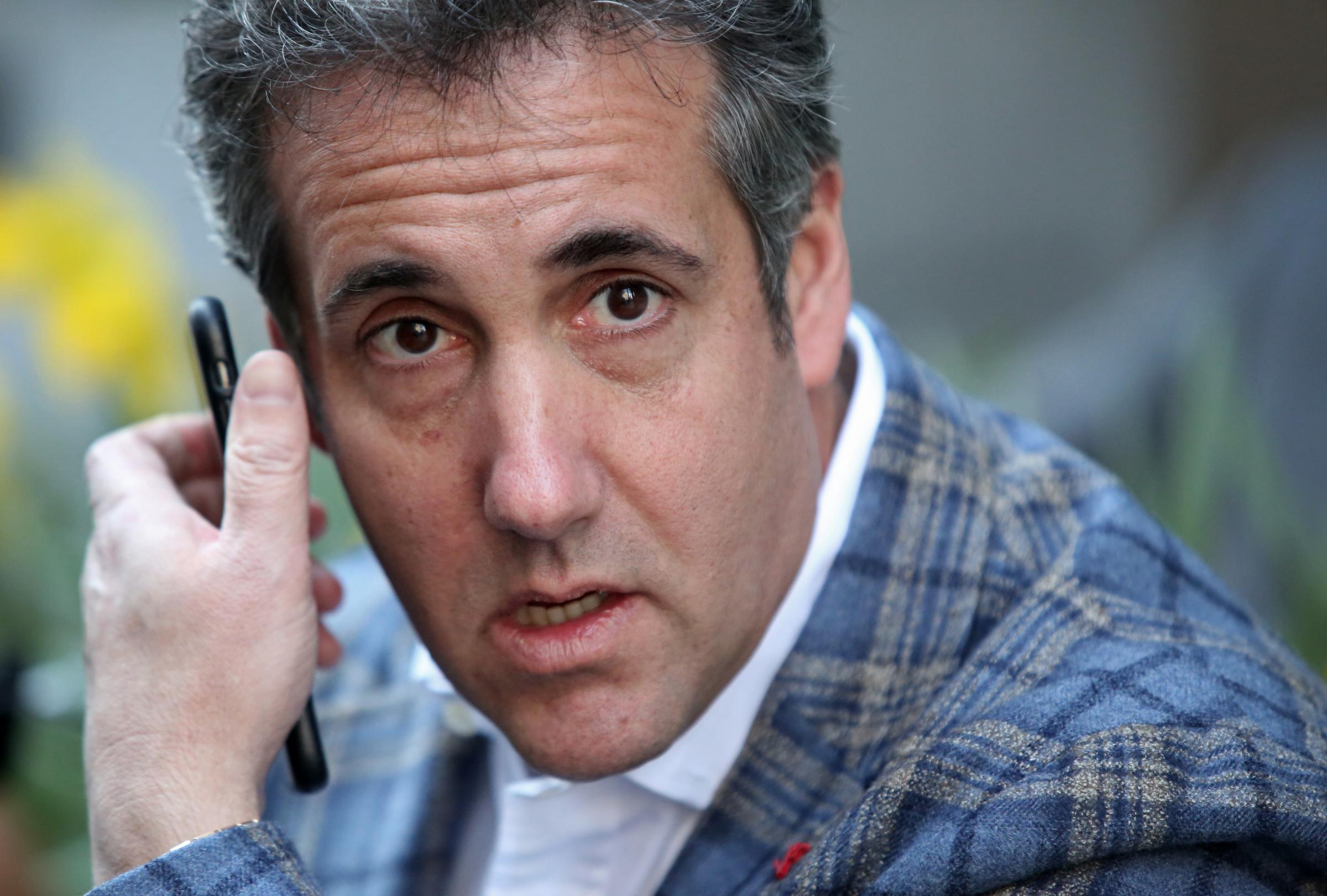
Cohen began working for the Trump campaign in 2015
On approximately June 16, 2015, [Trump], for whom Cohen worked at the time, began an ultimately successful campaign for President of the United States. Cohen had no formal title with the campaign, but had a campaign email address, and, at various times advised the campaign, including on matters of interest to the press. Cohen also made media appearances as a surrogate and supporter of [Trump].
Source: Southern District of New York sentencing memo for Michael Cohen, Dec. 7, 2018.
He met with the National Enquirer about keeping sex scandals quiet
American Media, Inc. (“AMI”) is a corporation based in New York. AMI owns and publishes magazines, supermarket tabloids, and books, including the National Enquirer, OK! Magazine, Star Magazine, Radar Online, Men’s Journal, and Muscle & Fitness Her’s. … In or about August 2015, David Pecker, the Chairman and Chief Executive Officer of AMI, met with Michael Cohen, an attorney for a presidential candidate, and at least one other member of the campaign. At the meeting, Pecker offered to help deal with negative stories about that presidential candidate’s relationships with women by, among other things, assisting the campaign in identifying such stories so they could be purchased and their publication avoided. Pecker agreed to keep Cohen apprised of any such negative stories.
Source: Southern District of New York cooperation agreement, Sept. 20, 2018
Cohen kept Stormy Daniels and Karen McDougal stories out of the news
During the campaign, Cohen played a central role in two similar schemes to purchase the rights of stories — each from women who claimed to have had an affair with [Trump] — so as to suppress the stories and thereby prevent them from influencing the election. With respect to both payments, Cohen acted with the intent to influence the 2016 presidential election. Cohen coordinated his actions with one or more members of the campaign, including through meetings and phone calls, about the fact, nature, and timing of the payments. In particular, and as Cohen himself has now admitted, with respect to both payments, he acted in coordination with and at the direction of [Trump].
Source: Southern District of New York sentencing memo for Michael Cohen, Dec. 7, 2018
He promised to reimburse the Enquirer on the McDougal story
In or about June 2016, an attorney representing a model and actress attempting to sell her story of her alleged extramarital affair with the aforementioned presidential candidate contacted an editor at the National Enquirer. Pecker and the editor called Cohen and informed him of the story. At Cohen’s urging and subject to Cohen’s promise that AMI would be reimbursed, the editor began negotiating for the purchase of the story.
Source: Southern District of New York cooperation agreement, Sept. 20, 2018
Michael Flynn’s Russian contacts
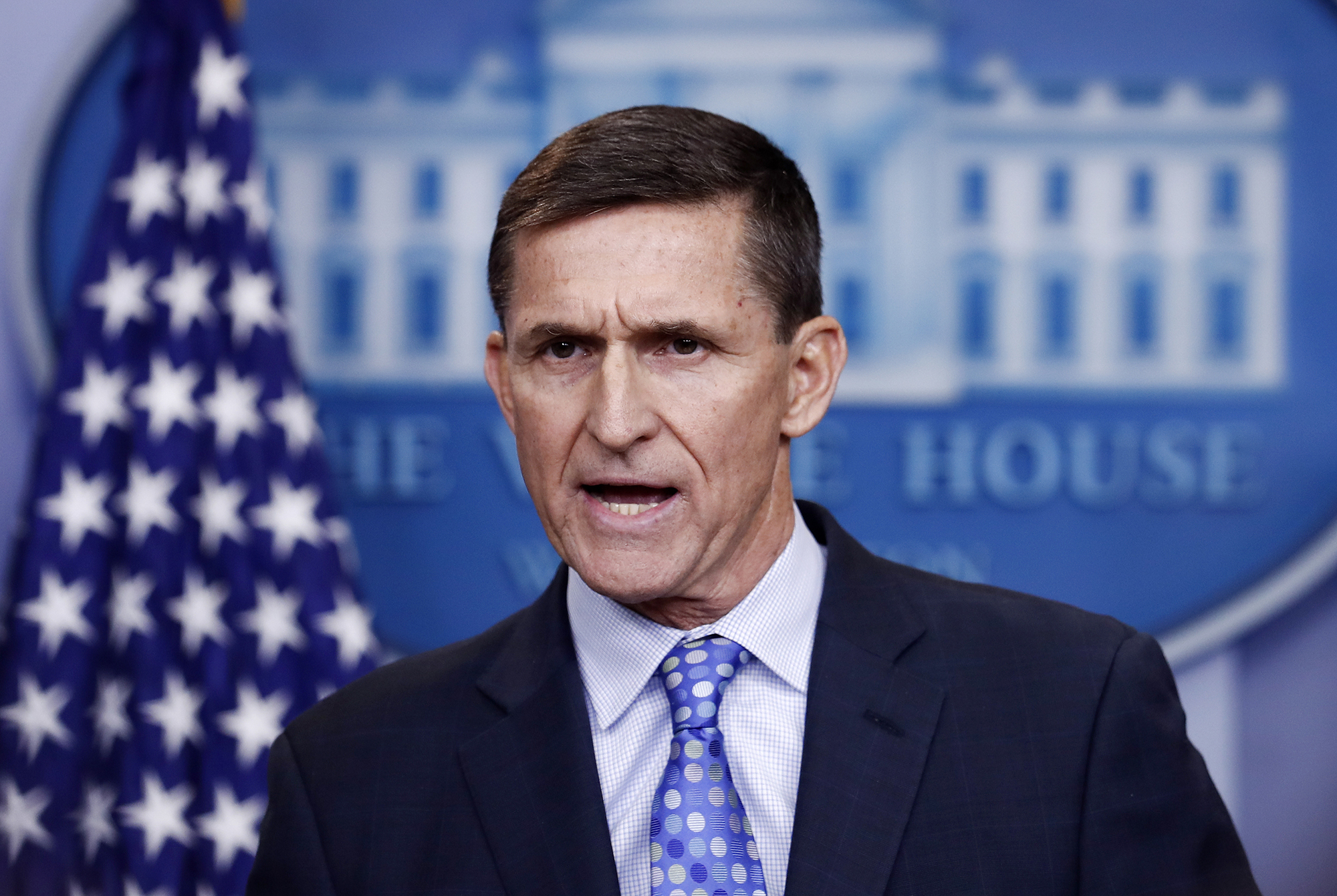
After the election, President Obama sanctioned Russia over meddling
On or about December 28, 2016, then-President Barack Obama signed Executive Order 13757, which was to take effect the following day. The executive order announced sanctions against Russia in response to that government’s actions intended to interfere with the 2016 presidential election (“U.S. Sanctions”).
Source: Mueller charging document for Michael Flynn, Dec. 1, 2017
Flynn talked with the Russian ambassador about sanctions
On or about December 28, 2016, the Russian Ambassador contacted [Flynn]. … On or about December 29, 2016, FLYNN called a senior official ofthe Presidential Transition Team … who was with other senior ·members of the Presidential Transition Team at the Mar-a-Lago resort in Palm Beach, Florida, to discuss what, if anything, to communicate to the Russian Ambassador about the U.S. Sanctions. On that call, [Flynn] and the [transition team] official discussed the U.S. Sanctions, including the potential impact ofthose sanctions on the incoming administration’s foreign policy goals. The [transition team] official and [Flynn] also discussed that the members of the Presidential Transition Team at Mar-a-Lago did not want Russia to escalate the situation. … Shortly after his phone call with the Russian Ambassador, [Flynn] spoke with the [transition team] official to report on the substance of his call with the Russian Ambassador, including their discussion of the U.S. Sanctions. On or about December 30, 2016, Russian President Vladimir Putin released a statement indicating that Russia would not take retaliatory measures in response to the U.S. Sanctions at that time.
Source: Mueller charging document for Michael Flynn, Dec. 1, 2017
Paul Manafort’s contacts with the Trump Administration
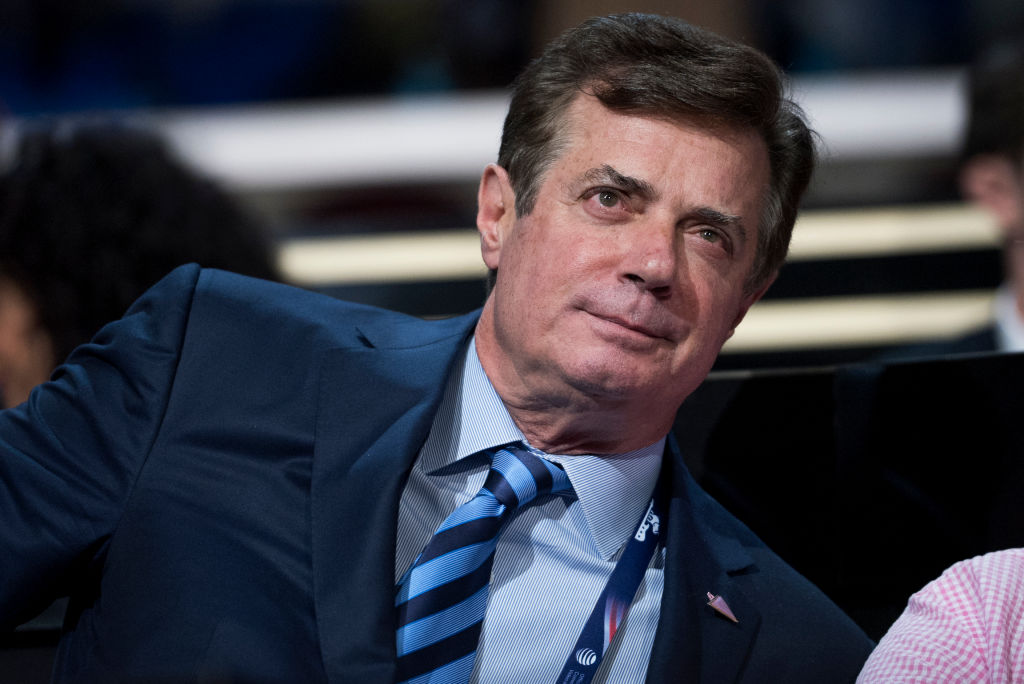
Manafort kept in touch with the Trump Administration
After signing the plea agreement, Manafort stated that he had no direct or indirect communications with anyone in the Administration while they were in the Administration and that he never asked anyone to try to communicate a message to anyone in the Administration on any subject matter. … The evidence demonstrates that Manafort lied about his contacts. The evidence demonstrates that Manafort had contacts with Administration officials. For instance, in a text exchange from May 26, 2018, Manafort authorized a person to speak with an Administration official on Manafort’s behalf. Separately, according to another Manafort colleague, Manafort said in February of 2018 that Manafort had been in communication with a senior Administration official up through February 2018. A review of documents recovered from a search of Manafort’s electronic documents demonstrates additional contacts with Administration officials.
Source: Mueller request to find Manafort in breach of plea agreement, Dec. 7, 2018
More Must-Reads From TIME
- The 100 Most Influential People of 2024
- The Revolution of Yulia Navalnaya
- 6 Compliments That Land Every Time
- Stop Looking for Your Forever Home
- If You're Dating Right Now , You're Brave: Column
- The AI That Could Heal a Divided Internet
- Fallout Is a Brilliant Model for the Future of Video Game Adaptations
- Want Weekly Recs on What to Watch, Read, and More? Sign Up for Worth Your Time
Contact us at letters@time.com